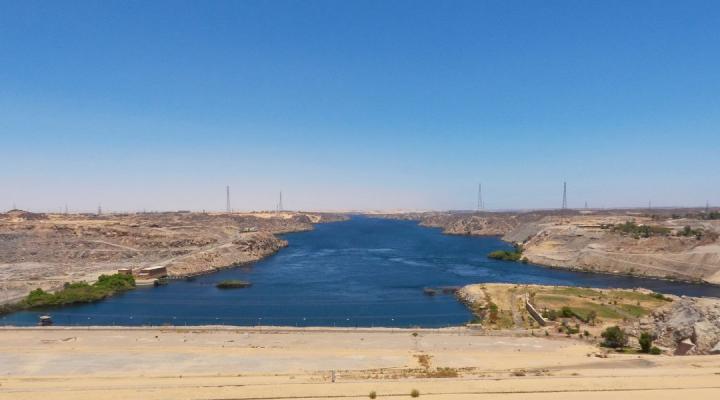By Dr Shamsheer Vayalil, Founder and Chairman of Burjeel Holdings – one of the leading private healthcare service providers in the Middle East and North Africa. Shamsheer is a judge on the Burjeel Holdings Oxford Saïd Climate Change Challenge and has provided this blog for Oxford Answers.
With each passing year, we witness a growing number of humanitarian crises triggered by escalating heatwaves, wildfires, floods and tropical storms. 2023 is set to be the warmest year on record and in a recent report in the BioScience journal over 15,000 scientists from 161 countries sent a clear message: Earth’s rapidly transforming environment could lead to a colossal global disaster by the close of this century.

Climate change is a public health crisis. The true short- and long-term toll of climate change may be difficult to measure since it is contributing to multiple challenges for food security, education and the economy - all of which have very negative impact on health.
The global health crisis
Healthcare professionals are already seeing some of the effects of climate change on human health. Physicians are reporting more low-birth-weight babies and miscarriages; treating children with impaired lung function due to air pollution; more patients with inflammatory skin diseases caused by allergies, heat, and air pollution; worsening symptoms in patients with pre-existing heart conditions; and there are reports of excess cancer deaths related to climate change.
The World Health Organization (WHO) data provides clear insights on the profound interconnection between climate change and global health. Research indicates that an astounding 3.6 billion people already reside in regions highly susceptible to the perils of climate change. Even more concerning, projections from 2030 to 2050 anticipate around 250,000 additional deaths each year due to climate-induced undernutrition, malaria, diarrhoea, and heat stress alone. And the toll extends beyond the health sector, seeping into critical areas such as agriculture and water and sanitation.
The adverse effects of climate change have far-reaching implications, including direct damage costs to health, which are projected to escalate to an estimated $2 - $4 billion annually by 2030. However, it is vital to emphasise that the economic toll extends beyond the health sector, seeping into critical areas such as agriculture and water and sanitation.
Paula DiPerna, author of a new book, Pricing the Priceless: The Financial Transformation to Value the Planet, Solve the Climate Crisis, and Protect Our Most Precious Assets spoke about the principle that nature is an unpaid worker providing services, like carbon sequestration, soil retention, replenishing raw materials and more. She wrote that protecting the environment is portfolio management, since it is providing an invisible subsidy to world economies.
While the repercussions of climate change reverberate globally, it is undeniably the regions with fragile health infrastructures - often found in developing countries - that are the least equipped to cope without external assistance. These areas face the stark reality of enduring both the increasing health burdens imposed by climate change and the strain on health systems unequipped to respond effectively.
The imperative of health financing
Without setting a price, an asset is invisible from a financial standpoint, DiPerna argues. Health financing plays a pivotal role in addressing the profound health impacts of climate change. It forms the cornerstone of a comprehensive approach to building resilient healthcare systems that can weather the mounting challenges brought about by climatic disruptions.
One of the most critical aspects of health financing involves strengthening healthcare infrastructure. This encompasses bolstering the capacity of healthcare workers, ensuring the consistent availability of medical supplies, and fortifying the resilience of healthcare facilities. Additionally, it is vital to establish climate-resilient healthcare facilities that can withstand extreme weather events, ensuring that vital medical services continue uninterrupted.
The role of international organisations and multilateral development banks
Multilateral development banks (MDBs) have emerged as vital instruments in driving climate finance. Worldwide climate finance reached nearly $100 billion in 2022, and in an historic milestone, close to $61 billion of that was allocated to low and middle-income economies. The significant jump in climate finance volumes reflects the pressing need to mobilise resources at a global scale.
The journey towards climate resilience is a collective effort that extends beyond the realm of international organisations and encompasses governments, private sector entities, and civil society. By working together, we can unlock the trillions of dollars in climate finance needed to navigate the adverse impacts of climate change.

Transparent reporting on climate finance
One essential aspect of the climate finance landscape is transparent reporting. The Joint Report on MDBs Climate Finance provides a clear understanding of the methodologies for tracking progress regarding global climate targets. By enhancing the accuracy and transparency of climate finance reporting, the global community can assess the effectiveness of these efforts and optimise climate finance allocation.
Moreover, the 2022 report incorporates data from all ten MDBs, offering a comprehensive overview of their collective climate finance efforts. This united approach, combined with global commitments, is paving the way for a more resilient world in the face of climate change’s inexorable march.
Conclusion: A global endeavour
Addressing the health impacts of climate change through health financing is not just an option; it is an obligation. As we bear witness to the accelerating impacts of climate change on health, the imperative of global cooperation has never been more apparent.
The world has made commendable strides, yet the path ahead is arduous. The challenge of climate change and its health repercussions is vast and complex. However, it is through resolute collaboration, and the mobilisation of resources, that we can forge a path toward global climate resilience, ensuring that our collective health is safeguarded in an ever-changing world. Our commitment today will determine the health and well-being of future generations.
The Climate Change Challenge is a global competition for high school students (aged 15 to 18) and teachers which Burjeel Holdings and Saïd Business School launched in the summer of 2023. The challenge engaged youth and educators across the world to contribute their ideas and take action towards creating solutions to the greatest and most complex threat to humanity: the climate crisis.
Many thanks to the panel of international judges who gave their time and expertise to review entries for our Climate Change Challenge. The winners were announced at COP28, the UN Climate Conference, in Dubai on 2 December.




